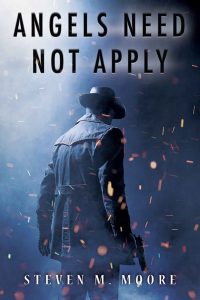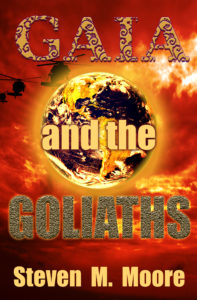What to do with Goodreads?
Amazon has been anti-author/anti-publisher for quite a while (I boycott it as much as possible), belying its beginning as an online bookstore, and it has dragged Goodreads down ever since it was purchased by Amazon. Goodreads has become so bad that even the New York Times is going after it (article in the June 27 edition). That’s not surprising when you read the article. The Times caters to the Big Five publishing consortiums, and the latter’s authors are also getting whacked by trolls on Goodreads as well as Amazon.
In the years before Amazon, Goodreads was a neutral congregating place for authors and readers alike where genre and character preferences were more prevalent than politics and trolling. Many of its groups had lively and interesting discussions about books. I know; I was in some of them. Then the trolls took over. Many groups became anti-author and little personal kingdoms for their authoritarian monitors. I bailed out of a lot of groups when I dared express something the monitors and their toadies didn’t like. Goodreads has continued to be dominated by trolls, as the New York Times’ article proves. And Amazon has done nothiong to stop them.
I suppose the bifurcation of Goodreads and other book discussion groups into warring camps is only a reflection of what’s going on culturally and politically in the US in general, a separation into warring tribes out to destroy the other tribes. Social media has become a dangerous jungle, so Goodreads is not exceptional.
But it never was a good place for self-published authors, and even less so after Amazon took it over. Most of my books are self-published, but my traditionally published ones weren’t received well at all either. And members of Goodreads can opine about any book without even reading it! At least the old Amazon site tries to avoid that; it just follows the old model: Anyone can review a book if they purchased it. Many do, get their one-star troll-reviews published, and then return the book. On Goodreads, though, it’s a free-for-all!
Of course, Goodreads just follows Amazon’s crazy, original ranking system. You can see it clearly: Most reviews are either very negative or very positive. The distribution for any book’s rating is bimodal; instead of being more or less a Gaussian distribution with one peak more or less centered on the average and falling off on either side to lower and higher rankings, it has two peaks around one-star ratings and five-star ratings. That’s not only useless for readers when considering their book purchases, it shows most reviewers are completely dishonest. (God help their students if they’re teachers!)
And the ratings are skewed by two other phenomena: the one-star reviews are mostly written by trolls, and the five-star ratings are mostly written by a book’s ardent fans. The latter means that the thousands of four- and five-star ratings for a best-selling book, while pleasing Amazon to no end (and maybe a few authors and publishers) if these were all qualified purchases, just represent people hopping on the proverbial bandwagon. It’s déjà vu all over again a la Taylor Swift’s concert ticket purchases. For a discerning reader (or music lover), such statistics are basically worthless. (That’s why I ignore “American Idol,” “Dancing with the Stars,” and other TV shows that allow audience voting. For example, Christian fundamentalists skewed the first show’s results against Alan Lambert. Thank God those old Queen members recognized his talent! What happened to that other guy all the evangelicals wanted to win because Lambert is gay? No one knows or cares.)
But you can’t trust the so-called experts either. Has one New York Times critic ever reviewed a self-published book? Maybe, but I’ve never seen one. That’s because the critics are paid by the Times, and that newspaper (and many others!) panders to Big Five authors and books and ignores the self-published ones. I haven’t read any traditionally published fiction (beyond my own in editing mode) in years!
People’s entertainment choices should be personal ones. What we like should be our personal decision, not one expressed by some troll, newspaper, website, or particular tribe. I ignore statements like “everyone loves author X” or “this book is critically acclaimed by Y.” You should too. Read the blurb, peek inside, and decide for yourself. That’s the sign of an intelligent reader who avoids the bandwagons and doesn’t pay attention to either trolls or critics.
***
 A series to consider. Both the Amazon and Goodreads sites and their users all too often ignore series containing “evergreen books.” (The New York Times does as well.) “Evergreen” means a book that’s as entertaining and fresh today as the day the author finished its manuscript. (Several from traditionally and self-published authors are found on my “Steve’s Bookshelf” web page—most of the traditionally published ones are non-fiction.)
A series to consider. Both the Amazon and Goodreads sites and their users all too often ignore series containing “evergreen books.” (The New York Times does as well.) “Evergreen” means a book that’s as entertaining and fresh today as the day the author finished its manuscript. (Several from traditionally and self-published authors are found on my “Steve’s Bookshelf” web page—most of the traditionally published ones are non-fiction.)
Too many readers focus on new books and neglect the evergreen ones. You’re smarter than that, so for your consideration I offer my “Detectives Chen and Castilblanco” series of evergreen mystery and thriller novels, a seven-book series (eight if you count the crossover novel Defanging the Red Dragon, a free PDF download available at this website).
 Chen and Castilblanco are two NYPD detectives who practice their trade in NYC, the US, and overseas. (Red Dragon covers all three locales in one novel!) Only the first novel, The Midas Bomb, has a print version. (Amazon, in another egregious master stroke, has now made print versions impractical in general and for me in particular, because of my efforts to save trees.) All except Red Dragon have ebook versions available wherever quality ebooks are sold (even on Amazon because they were published pre-boycott!). Here’s your chance to break out of the new-book herd to read some evergreen books!
Chen and Castilblanco are two NYPD detectives who practice their trade in NYC, the US, and overseas. (Red Dragon covers all three locales in one novel!) Only the first novel, The Midas Bomb, has a print version. (Amazon, in another egregious master stroke, has now made print versions impractical in general and for me in particular, because of my efforts to save trees.) All except Red Dragon have ebook versions available wherever quality ebooks are sold (even on Amazon because they were published pre-boycott!). Here’s your chance to break out of the new-book herd to read some evergreen books!
Around the world and to the stars! In libris libertas!
